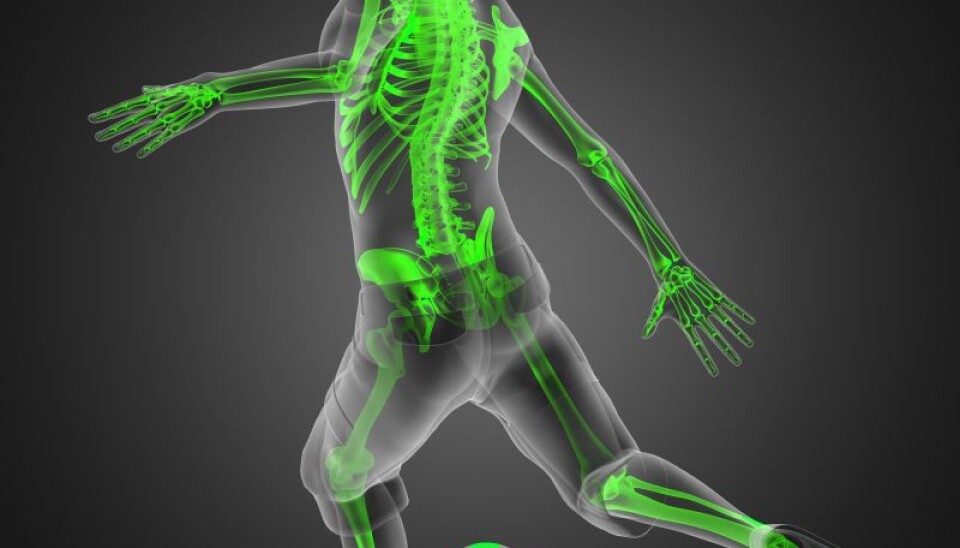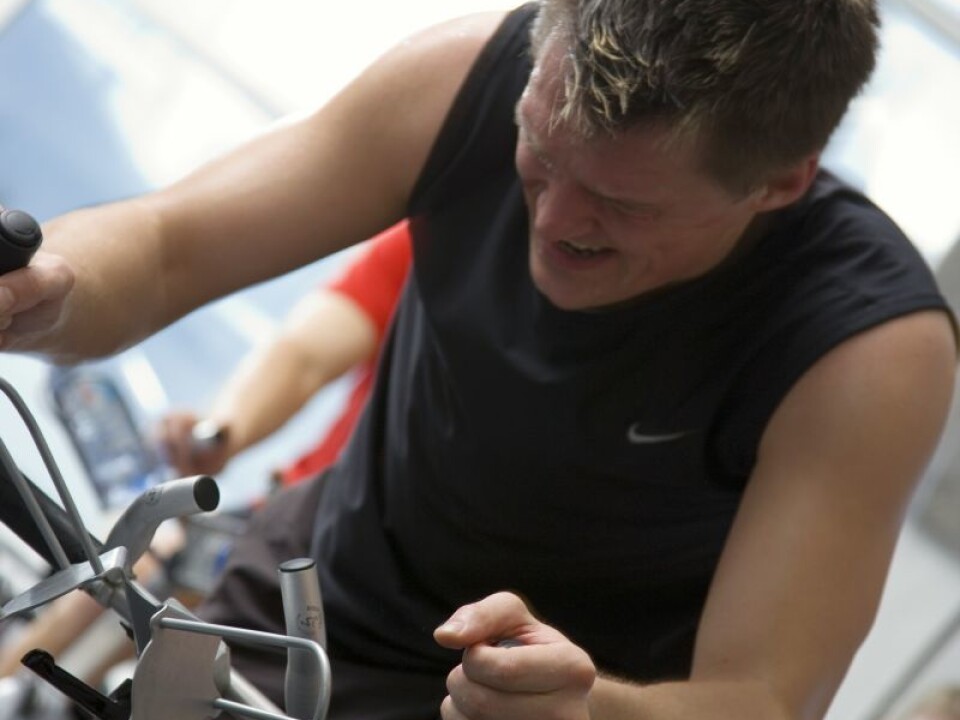
An intense workout boosts motor learning
A single session of intense exercise can improve motor memory and motor skill learning.
Good news for those who want to learn a new skateboard trick or those who want to bend it like Beckham:
Getting your heart rate up immediately after practicing a motor task improves your long-term retention of that particular motor skill, a new study shows.
“If you engage in physical activity, e.g. intensive cycling, after you have acquired a motor task, you’ll get better at performing the same task again a week later,” says Kasper Skriver, a PhD student at Copenhagen University’s Department of Exercise and Sport Sciences, who is one of the researchers behind the new study, just published in the scientific journal PLoS One.
Visuomotor task before or after a workout
The experiment that led to this surprising conclusion involved 48 young men who were randomly allocated into three groups.

All 48 men were given the task to teach themselves to draw a very simple figure on a computer screen. They were then given an exercise plan, depending on which group they were allocated to.
- The first group was asked to do a 15-minute interval workout on an exercise bike just before practicing the drawing task on the computer screen. They were asked to step on it so that they reached 80-90 percent of their maximum heart rate.
- The second group did the very same exercise right after practicing the drawing task.
- Group three practiced the drawing task without doing any exercise.
“The men’s age, BMI and physical fitness were taken into account,” says Skriver. “This meant that we had three highly homogenous groups without statistical variation.”
The exercise effect kicks in after a week
The experiment ran daily over the course of a week. Motor skill acquisition was assessed during practice and retention was measured 1 hour, 24 hours and 7 days after practice.
Immediately after the exercise we noted no significant difference in the retention of the motor skill among the three groups. However, when they repeated the task after an hour, 24 hours and a week, a difference started emerging.
“Immediately after the exercise we noted no significant difference in the retention of the motor skill among the three groups,” says the researcher. “However, when they repeated the task after an hour, 24 hours and a week, a difference started emerging.”
After a week the difference between the groups became clear:
- If you reach 80-90 percent of your maximum heart rate after practicing a motor skill, there is a 10-percent increase in the retention of the motor skill after a week.
- If you get your heart rate up before practicing the task, the retention increases by 6 percent after a week.
This may not sound like much, but keep in mind that this is the effect of just one single 15-minute intense workout.
“There are numerous ways of getting your heart rate up. We chose an exercise bike because that’s something all our participants could manage. It’s important that during the exercise there is no secondary learning task that interferes with the one you’re actually trying to learn."
Could be useful in rehabilitation
You don’t need to be the sporty type to benefit from these new findings:
“We still have a lot of research to do, but we hope our results can help people recover from an accident or a stroke, or help children with congenital brain damage,” he says.
It will, however, take a while before we’ll be seeing a detailed guide to how these findings can be applied in practice. The researchers are still trying to figure out why the intense exercise boosts the retention of motor skills.
During the experiment they took blood samples from the participants. These samples will now be analysed to see whether the intense exercise makes the body form substances that facilitate learning.
------------------------------------
Read the Danish version of this article at videnskab.dk
Translated by: Dann Vinther






